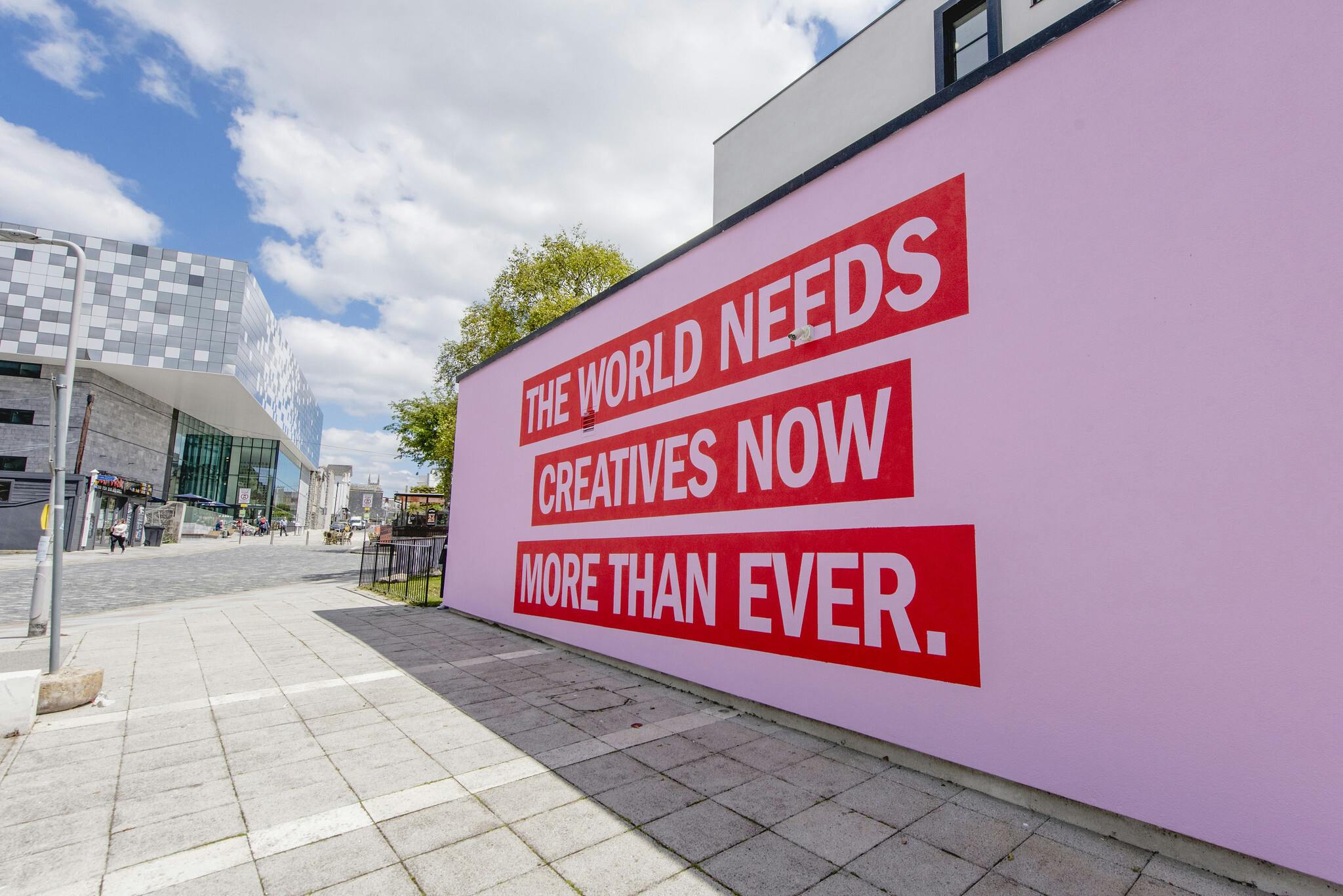Latest News
Lucy Leake: The World Needs Creatives Now More Than Ever
Sunday, 9 February, 2020 — Assistant Head of School for Arts + Media, Lucy Leake, discusses the importance of creative storytelling to personal identity and 21st-century challenges.
<p dir="ltr"><a href="https://www.aup.ac.uk/people/lucy-leake">Lucy Leake</a> is the Assistant Head of Plymouth College of Art’s <a href="https://www.plymouthart.ac.uk/about-us/school-of-arts-media">School of Arts + Media</a>, Principal Lecturer and Project Manager for the <a href="https://www.plymouthart.ac.uk/study/pre-degree/bfi-film-academy-plymouth@1">BFI Film Academy Plymouth</a>. Lucy holds the position of Secretary on the Executive Board of NAHEMI (National Association of Higher Education in Moving Image), the organisation that represents the centres of excellence for the teaching of film, television, video, animation and digital media practice in the UK and in Ireland.<br /></p>
<p dir="ltr">Lucy is an educator, artist, and academic researcher, whose pedagogic research focuses on student engagement, and creative approaches to Higher Education teaching and learning in Arts and Media. Her film practice and research is focused around notions of memory. Lucy has published works on how family stories are fabricated, gendered and collectively re-remembered in a digital age.</p>
<p dir="ltr"><strong>Here, she talks about why the world needs creatives now more than ever...</strong></p>
<p dir="ltr">Alongside the anxiety and fear of England’s first national lockdown, creativity boomed. Suppliers couldn’t keep up with demand for art supplies, and DIY sales boomed. There were national flour shortages as we baked our own bread, musical instruments flew off the shelves, and across the UK, people began to grow vegetables and to embrace their environments in different ways than rush hour life had previously allowed.</p>
<p dir="ltr">In the darkness of that time, people found light through connecting with creative practice. Like many working parents, there were still plates to spin and it wasn’t always easy, but there was more space in my day. I was not alone in using the time reclaimed from my commute in more creative and beneficial ways. <br /></p>
Lucy Leake, Principal Lecturer & Assistant Head of School of Arts + Media
<p dir="ltr">As we settled into a schedule that felt a little gentler than before, I got to know my children on a different level. Although the workload of my job was intense, I made time every day to go for a long walk with my children, and we really talked. I was acutely aware that they were missing out on making memories with their own friends, and had no chance for the usual social interactions, messing about and pushing boundaries. This should have been a time for social growth, for creating their own story as young teens, and so our walks and other creative pursuits became important parts of the story of our lockdown.</p>
<p dir="ltr">We explored our home environment more fully than we previously had time to do, creating outdoor photography challenges, cooking weird and wonderful new recipes, listening to all the CDs and records in the house, playing video games and scrapbooking, growing sunflowers, and joking with our friends that we had “finished” Netflix. In the stillness and stagnation of lockdown there was growth. We were still creating stories. <br /></p>
Plymouth College of Art proposes that ‘the world needs creatives now more than ever’, not only because we need innovation and creativity to meet the challenges of the 21st Century, but because the world needs us to embrace storytelling as fundamental to the human condition.
<p dir="ltr">A huge part of our identity is wrapped up in storytelling. Our stories define who we are. We create our world through the stories that we tell and we come to understand our world through those stories. We use storytelling to foster empathy, to teach life lessons, to raise awareness to social issues, to thrill, to entertain, for escapism, for pleasure and to narrate our lives. Stories are how we remember people, and how we are ultimately remembered.</p>
<p dir="ltr">Plymouth College of Art proposes that ‘the world needs creatives now more than ever’, not only because we need innovation and creativity to meet the challenges of the 21st Century, but because the world needs us to embrace storytelling as fundamental to the human condition.</p>
<p dir="ltr">Storytelling brings light to the dark times. It also allows us to know ourselves and to have an impact on the world. Making space to own our storytelling through creative practice, whether through the medium of filmmaking, sculpture, fashion design or painting, allows us to connect with each other as human beings, to develop empathy, and ultimately to make the world a better place for ourselves and future generations.<br /></p>
